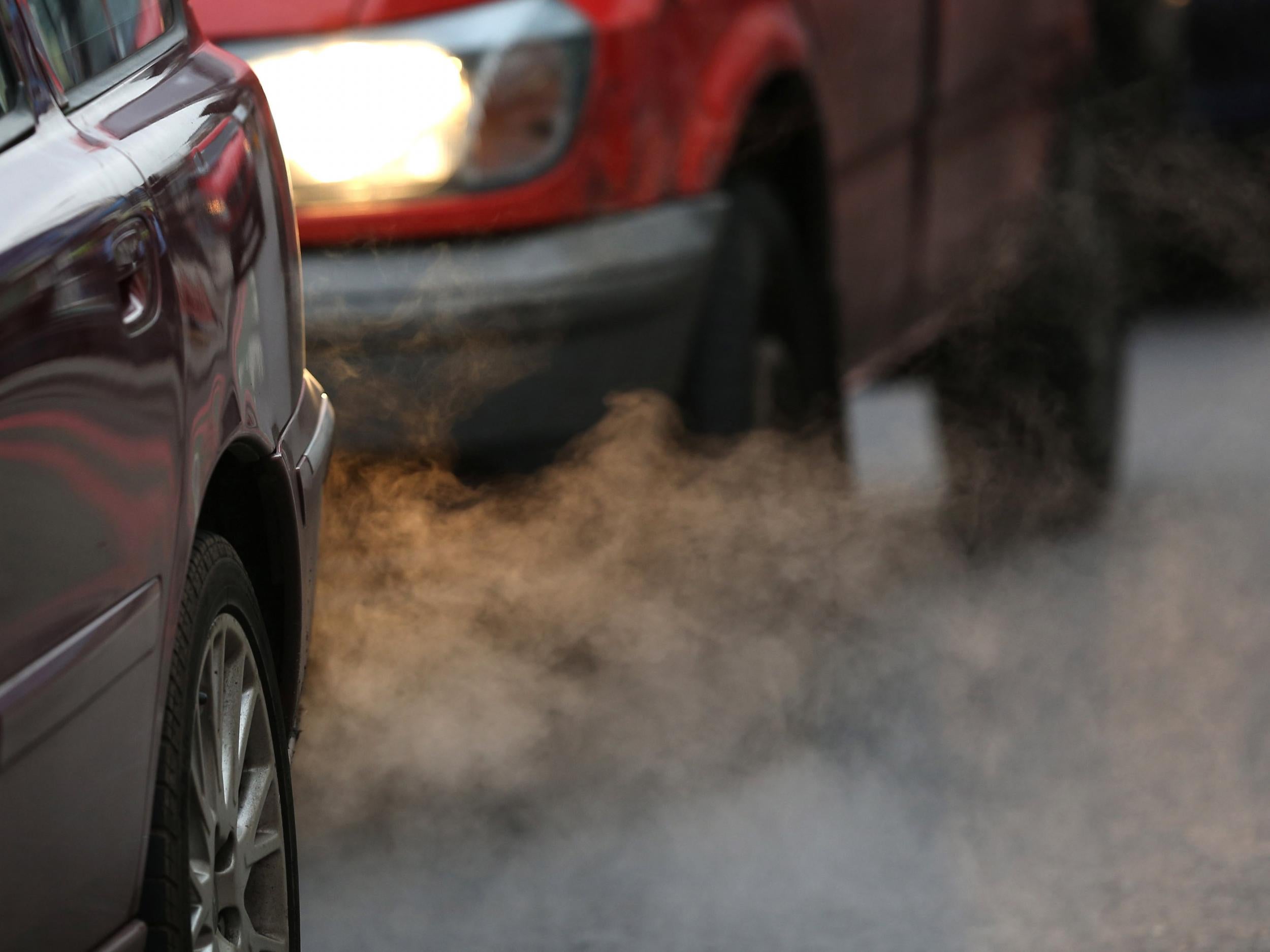Nearly 80% of new diesel cars still pollute beyond legal limits, tests reveal
‘Current official tests fail to measure the actual level of emissions that cars are producing on our roads’

Some modern cars are emitting 25 times the legal levels of harmful pollutants into the atmosphere, according to a new report.
Tests conducted on 61 new diesel vehicles found that 80 per cent of them exceeded the limits for nitrogen oxides (NOx).
All of these cars complied with the official Euro 6 emissions standards, which manufacturers say makes the latest generation of vehicles the “cleanest in history”.
NOx pollutants in the atmosphere have been linked with health problems from breathing difficulties to heart disease, and the UK has repeatedly been criticised for its illegally high levels of these gases.
The new investigation by consumer organisation Which? used more rigorous methods that mirror real-world conditions better than official tests.
“The current official tests fail to measure the actual level of emissions that cars are producing on our roads,” said Alex Neill, managing director of home products and services at Which?.
“Most diesels we assess are producing far more NOx in our tests than official limits allow.
“The new official tests should help reduce harmful emissions – but we will continue to penalise any car we find that produces excessive levels of pollutants in our tests.”
On average, the cars tested produced 0.27g/km of NOx – nearly three and a half times the official limit. The worst performing vehicle was the Subaru Forester, which at 2.0g/km of NOx was 25 times higher than Euro 6 levels.
The tests used by Which? involve measuring emissions when the car is in its default setting rather than a more economical driving mode, and with the air conditioning, radio and lights on.
They also measured fuel economy and emissions output in motorway conditions, which official tests do not include.
In response to the results Mike Hawes, chief executive of the Society of Motor Manufacturers and Traders said: “The non-official test employed by Which? is very different from the current EU test, so it’s no surprise it delivers different results.
“Only the official tests accurately compare models on a like-for-like basis, helping inform consumers.”
Emissions from diesel cars have been the subject of controversy since the “dieselgate” scandal of 2015, which found Volkswagen had been fooling lab emissions tests using “cheat software”.
In the aftermath of the scandal tough new road-based emissions tests were introduced in September last year, but many models approved before this data did not have to comply.

The findings chime with the results of an investigation by Greenpeace in March that revealed many of the diesel cars on sale in Europe would not be allowed to market if they were tested today due to their high emissions levels.
“These are yet more shocking findings about just how dirty diesel vehicles are,” said Greenpeace clean air campaigner Morten Thaysen.
“We already have alternatives, such as hybrids and electric, which are more efficient and better for our air and our climate. Diesel cars are making the air we breathe vile and toxic, so we need to act fast to get them off our roads immediately.”
While Which? did find that some models did not emit high levels of pollutants, it recommended customers “think carefully” before buying a diesel car.
The UK diesel vehicle market has seen a slump over the past year, with nearly a quarter fewer cars being registered.
The government currently intends to phase out sales of both petrol and diesel cars and vans by 2040, but advisers have recommended more ambitious targets to help tackle climate change.
Additional pressure has piled on as the UK continues to breach European limits for nitrogen dioxide emissions, a gas that primarily comes from road traffic.
Join our commenting forum
Join thought-provoking conversations, follow other Independent readers and see their replies
Comments
Bookmark popover
Removed from bookmarks